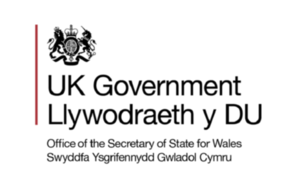Press release: Welsh Secretary congratulates Welsh recipients of New Year’s Honours for 2019
New Years’ Honours list published
New Years’ Honours list published
This lists the names of people who have received The George Medal, The Queen’s Gallantry Medal and The Queen’s Commendation for Bravery.

Secretary of State for Scotland David Mundell
From sportspeople to academics to community champions, more than 100 Scots appear on her Majesty’s 2019 New Year Honours list.
Welcoming the Honours, Scottish Secretary David Mundell said:
I’m delighted and very proud that so many Scots who have made an immense contribution in such a diverse range of fields have been honoured.
They have made an outstanding contribution in a wide range of areas, from charity to business and sport to science. They help our communities thrive and inspire future generations.
For his important research in life sciences at the University of Dundee, Mike Ferguson adds ‘Sir’ to his title Professor.
Ann Gloag, a tireless philanthropist and hugely successful businesswoman, is an inspiration.
The incomparably brilliant Nicola Benedetti is recognised for her services to music, while Doddie Weir, Kate Caithness and Louise Martin are honoured for their tremendous contribution to Scottish sport.
I am pleased so many Scots are recognised for their tireless work in their communities – from Desley Stickle in Shetland, to David Turnbull and Allan Beveridge in Peebles, and many more in-between. I offer my heartfelt congratulations to all those who have been honoured this year.
The full honours list can be found here: http://www.gov.uk/honours/honours-lists.
Published 28 December 2018

These honours recognise and celebrate the hard-work and achievements of the incredible people who go above and beyond to put others before themselves.
From household names to those silently serving their communities such as Reynette Roberts and Leon Gardiner, I am proud to see people from all walks of Welsh life being recognised for their commitment to their cause.
I am truly grateful for their dedication to their communities and thank them all for their tireless work to improve the lives of others as well as their extraordinary ability to inspire people all over the country. Congratulations to you all.
Published 28 December 2018